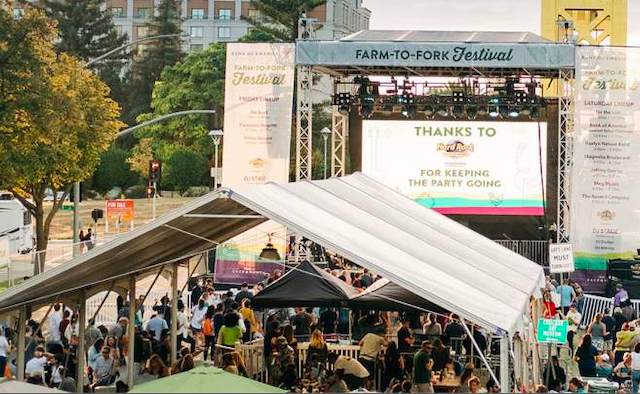Slow Food, the global movement dedicated to ensuring Good, Clean, and Fair food for all, and ‘Visit Sacramento,’ the destination marketing organization, joined forces to organize the inaugural edition of Terra Madre Americas. This international event explores the interconnectedness of food with various aspects of our lives and environment, including the climate crisis, social justice, and education within the food and beverage system, through the lens of specific topics. This first edition represents the foretaste of what Terra Madre Americas is going to be in the coming years, where the whole continent and many communities will be actively involved.
The event aims to delve beyond the surface and examine the intricate connections between food and various aspects of our lives and environment, particularly focusing on the climate crisis and social justice within the food and beverage system. In its inaugural edition, Terra Madre Americas will spotlight Latin America and its rich food biodiversity, showcasing local products and practices aimed at environmental conservation and resource preservation for future generations. Visitors will immerse themselves in these regions, exploring products, tasting them, participating in dedicated workshops, and engaging with delegates.
“This event is particularly relevant this year when we at Slow Foo are about to celebrate the 20th anniversary of Terra Madre, the global network that brings together communities from around the world,” comments Elisa Demichelis, Director of Slow Food Global North. At the end of September in Italy these international delegations will be the protagonists of Terra Madre Salone del Gusto, the most important Slow Food gathering. While the event in Italy will have a global perspective, Terra Madre Americas in Sacramento will be the occasion to turn the attention to the richness, food biodiversity, and communities coming from Latin America. Sacramento represents therefore the perfect location to celebrate the city’s innovative spirit and commitment to using locally sourced ingredients and its commitment to promote Slow Food philosophy.”
The event will offer the opportunity to discover biocultural territories through digital content, participate in workshops with Latin American delegates and representatives of migrant communities, better understand challenges and good practices related to the food systems, and create a sensory experience through taste workshops with traditional food and drinks.
The will be guided by five key supply chains: corn, sugar cane, açaí, cocoa, and quinoa. These chains serve as exemplary representations of food industrialization, providing a platform to address the problems and challenges faced within each sector. Each supply chain will be showcased within specific areas: Mesoamerica will spotlight the corn and milpa crop-growing system; the Pacific and Caribbean regions will feature ancestral viche production, a traditional home-brewed alcoholic drink made from sugar cane; the Amazon Rainforest will highlight açaí agroforestry cultivation; the Atlantic Rainforest will focus on agroecology and cabruca cocoa production systems; and the Andes will present traditional grains terrace systems.
The Slow Food Coffee Coalition is an international, open, and collaborative network that unites everyone involved in the coffee supply chain. Within its dedicated space, visitors can taste coffee from various producers, listen to their stories, and join the Coalition by signing the Manifesto.
Running in parallel with coffee, a space will be dedicated to the Slow Wine Coalition, which brings together everyone involved in the international wine chain, from farmers and viticulturists to distributors and sommeliers. A program of tastings, Masterclasses, and thematic meetings will allow visitors to discover wineries from the United States, Central, and Latin America. On May 20th, the event will move to Mulvaney’s B&L for a day exclusively dedicated to food & wine industry professionals who will have the opportunity to meet more than 30 wineries from the United States and Central and South America, all of which are participating in the Slow Wine Coalition.
Within the Food and Health education area, the emphasis will be on addressing key issues related to both human and planetary health, as well as the repercussions of our daily food decisions. Specifically, this area aims to underscore the interconnectedness of human health, environmental health, and animal welfare, and to illustrate how safeguarding biodiversity offers a potential solution to both the climate crisis and malnutrition in all its forms.
Terra Madre Americas will also be the occasion for the national Slow Food network to meet, exchange ideas, and future projects, and write the organization’s future.




















